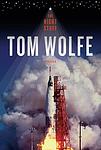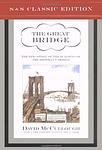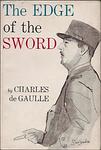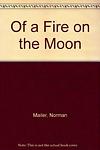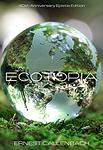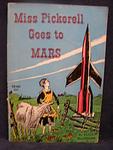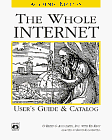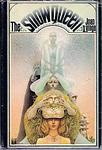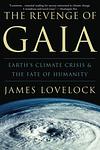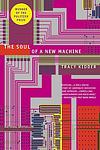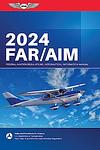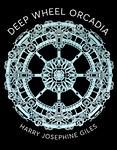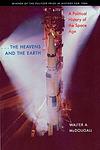The Greatest "Technology" Books of All Time
Click to learn how this list is calculated.
This list represents a comprehensive and trusted collection of the greatest books. Developed through a specialized algorithm, it brings together 284 'best of' book lists to form a definitive guide to the world's most acclaimed books. For those interested in how these books are chosen, additional details can be found on the rankings page.
Genres
The category of "Technology" in books encompasses a wide range of topics related to the study, development, and application of technology. This includes books on computer science, engineering, artificial intelligence, robotics, telecommunications, and more. The books in this category explore the latest advancements in technology, their impact on society, and the ethical and moral implications of their use. They are written for both technical and non-technical readers, providing insights into the world of technology and its role in shaping our future.
Countries
Date Range
Reading Statistics
Click the button below to see how many of these books you've read!
Download
If you're interested in downloading this list as a CSV file for use in a spreadsheet application, you can easily do so by clicking the button below. Please note that to ensure a manageable file size and faster download, the CSV will include details for only the first 500 books.
Download-
1. The Right Stuff by Tom Wolfe
"The Right Stuff" is a non-fiction novel that explores the lives and experiences of the first Project Mercury astronauts selected for the NASA space program in the 1960s. The book delves into the personal and professional lives of these astronauts, highlighting their courage, competitiveness, and the immense pressure they faced. It also provides a detailed account of the space race between the United States and the Soviet Union during the Cold War era.
-
2. The Devil In The White City by Erik Larson
This book intertwines the true tales of two men during the 1893 Chicago World's Fair: Daniel H. Burnham, the architect responsible for the fair's construction, and H.H. Holmes, a serial killer masquerading as a charming doctor. The narrative alternates between the story of Burnham, his challenges and successes in building the fair, and the chilling story of Holmes, who used the fair to lure his victims to their death. It's a vivid portrayal of the Gilded Age and a chilling exploration of one of America's first known serial killers.
-
3. What Is the What by Dave Eggers
The novel is a fictionalized account of a real-life Sudanese refugee, Valentino Achak Deng, who was forced to flee from his village during the Second Sudanese Civil War. The story follows his harrowing journey as a child through Ethiopia and Kenya, his life in various refugee camps, and his eventual resettlement in the United States. The book explores themes of survival, identity, and the power of storytelling, while shedding light on the tragic history and ongoing humanitarian crisis in Sudan.
-
4. Cybernetics by Norbert Wiener
"Cybernetics" is a groundbreaking work that explores the complex relationship between humans and machines. The book delves into the field of cybernetics, a term coined by the author, which refers to the study of systems and processes that exist in mechanical, biological, and electronic domains. The author discusses the potential of machine learning, artificial intelligence, and computer technology, predicting their profound impact on society, economy, and human behavior. The book also highlights the ethical implications of these technological advancements.
-
5. Great Bridge by David McCullough
This book is a detailed account of the construction of the Brooklyn Bridge, one of the most significant and iconic landmarks in New York City. It provides an in-depth look at the political, architectural, and personal challenges faced during its 14-year construction period in the late 19th century. The narrative also explores the lives of the Roebling family, who were the chief engineers and designers of the bridge, along with the societal changes and technological advancements of the era.
-
6. The Edge of the Sword by Charles De Gaulle
"The Edge of the Sword" is a compelling exploration of the art of leadership and the nature of power. The author, a prominent military and political figure, delves into the essence of politics and the requirements of leadership, emphasizing the need for strength, courage, and an unwavering commitment to one's principles. The book also provides a unique insight into the author's own leadership style and his views on France's role in the world.
-
7. On War by Carl Von Clausewitz
This book is a comprehensive analysis of warfare, written by a Prussian military theorist. It discusses the philosophical aspects of war, such as its political nature and purpose, as well as its practical aspects, such as strategy and tactics. The author argues that war is an extension of politics by other means and that its ultimate objective is to compel the enemy to fulfill our will. He also introduces the concept of "friction" in war, which refers to the unpredictable factors that can affect the outcome of military operations.
-
8. A Fire on the Moon by Norman Mailer
"A Fire on the Moon" is a detailed account of the Apollo 11 mission, which resulted in the first man landing on the moon. The book offers an in-depth exploration of the technical aspects of the mission, the astronauts involved, and the political and cultural implications of the historic event. It also delves into the author's personal reflections and philosophical musings on space exploration, technology, and the human condition.
-
9. Ideas and Opinions by Albert Einstein
This book is a collection of essays, letters, and speeches from a renowned physicist, offering his thoughts on a wide range of topics. It includes his insights on science, philosophy, religion, politics, peace, education, liberty, and morality. The physicist's reflections on his own scientific discoveries and the theories of other great thinkers are also discussed. This compilation provides a comprehensive view of his intellectual development and personal beliefs.
-
10. Science and Civilisation in China by Joseph Needham
"Science and Civilisation in China" is a comprehensive and authoritative series that explores the history of Chinese science, technology, and medicine. The series delves into the significant contributions China has made in various scientific fields, including astronomy, mathematics, physics, chemistry, biology, and medical science, among others. The author also examines the cultural, philosophical, and social contexts in which these scientific advancements took place, providing a holistic view of China's scientific history and its impact on the world.
-
11. Ecotopia by Ernest Callenbach
The book is a utopian novel that takes place in a fictional country located in the western part of the United States, which seceded from the rest of the country due to differing ecological policies. The society in this country is highly sustainable, with its citizens living in harmony with nature, practicing recycling and renewable energy use, and promoting gender equality. The story is told through the eyes of a skeptical American reporter who gradually comes to appreciate this alternative way of life.
-
12. Red Scarf Girl by Ji-li Jiang
"Red Scarf Girl" is a memoir of the author's childhood during the Cultural Revolution in China. The story follows a 12-year-old girl from a previously respected family who is labeled a class enemy and forced to turn against her own parents. The book provides a deeply personal account of the extreme political and social upheaval during this period in China's history, highlighting the fear, confusion, and courage of a young girl struggling to reconcile her loyalty to her family and her loyalty to her country.
-
13. Cadillac Desert by Marc Reisner
"Cadillac Desert" is a detailed exploration of the water crisis in the American West. The book delves into the history, politics, and environmental impact of water development in this region, highlighting the role of government policies and engineering projects. It also discusses the unsustainable use of water resources, the impact on local ecosystems, and the potential consequences of continued mismanagement, providing a comprehensive overview of a critical environmental issue.
-
14. Miss Pickerell Goes to Mars by Ellen Macgregor
A curious and adventurous woman, Miss Pickerell, finds herself accidentally aboard a rocket headed to Mars. Once there, she discovers a range of unique Martian plants and animals, and even stumbles upon a hidden lake. Miss Pickerell uses her scientific knowledge and resourcefulness to solve problems and overcome challenges, ultimately leading to her safe return to Earth.
-
15. The Whole Internet: User's Guide & Catalog by Ed Krol
This book is a comprehensive guide to using the internet, aimed at both beginners and experienced users. It covers a wide range of topics, including how to connect to the internet, how to use email and newsgroups, and how to find and use resources on the World Wide Web. The book also includes a catalog of internet resources, with descriptions and reviews of hundreds of internet sites.
-
16. Timeline by Michael Crichton
In "Timeline" by Michael Crichton, a group of archaeologists and historians are given the opportunity to travel back in time to the 14th century. As they venture into the past to rescue their colleague, they find themselves caught in a dangerous and unpredictable world. Faced with medieval warfare, treachery, and the challenges of adapting to a different time period, they must race against time to survive and make it back to the present.
-
17. The Snow Queen by Joan D. Vinge
In this science fiction retelling of a classic fairy tale, a young woman with telepathic abilities must navigate a complex interstellar society ruled by a powerful and enigmatic figure known as the Snow Queen. The protagonist's journey is one of self-discovery and rebellion as she seeks to rescue her beloved, who has been ensnared by the Snow Queen's influence. Set against a backdrop of political intrigue, ecological concerns, and the cyclical nature of change, the story explores themes of love, identity, and the struggle for freedom within a universe where technology and ancient myth intertwine.
-
18. Stuff Matters: The Strange Stories Of The Marvellous Materials That Shape Our Man Made World by Mark Miodownik
In this captivating book, the author explores the fascinating world of materials that surround us, revealing their hidden stories and remarkable properties. From the glass in our windows to the concrete in our buildings, Miodownik takes readers on a journey through the history, science, and cultural significance of everyday materials. With a blend of personal anecdotes, scientific explanations, and historical context, he showcases the marvels of materials and their impact on our lives, ultimately highlighting the beauty and complexity of the man-made world we inhabit.
-
19. The Revenge of Gaia by James Lovelock
The book presents a compelling argument about the Earth's self-regulating system, Gaia theory, and the severe impact of climate change on it. The author warns that if humans continue to harm the environment, Gaia will take revenge, leading to a much hotter and less hospitable planet. He proposes solutions to mitigate the damage, such as nuclear power and sustainable technology, emphasizing the urgency to act before it's too late.
-
20. The Age of Surveillance Capitalism by Shoshana Zuboff
The book explores the emergence of surveillance capitalism, a new form of capitalism that thrives on personal data. The author details how tech companies, such as Google and Facebook, collect and use personal data to predict and modify human behavior as a means to produce revenue and market control. The book delves into the consequences of this phenomenon on economy, society, and democracy, warning about the dangers of unchecked data collection and manipulation.
-
21. The Soul of a New Machine by Tracy Kidder
The book is a detailed account of a team of engineers at a prominent technology company in the late 1970s, as they race against time to design and build a new minicomputer. The narrative delves into the high-pressure world of corporate and technological competition, exploring the personal and professional dynamics among the team members. It offers an insightful look into the world of computer engineering, the obsession with innovation, and the relentless pursuit of success.
-
22. The Information by James Gleick
"The Information" explores the history and significance of information, from its origins in the form of language and writing to the modern digital age. James Gleick delves into the profound impact of information on society, science, and technology, highlighting key figures such as Claude Shannon and Alan Turing. Through captivating anecdotes and thought-provoking analysis, Gleick reveals how information has shaped our understanding of the world and revolutionized communication, ultimately challenging our notions of knowledge and reality.
-
23. Deep Wheel Orcadia by Harry Josephine Giles
"Deep Wheel Orcadia" by Harry Josephine Giles is a speculative fiction novel set in a future where climate change has ravaged the world. The story follows the protagonist, a young woman named Jo, as she navigates the post-apocalyptic landscape of Orcadia, a floating city made up of interconnected wheels. Jo becomes involved in a rebellion against the oppressive ruling class, discovering secrets about the city's history and her own identity along the way. Through themes of power, resistance, and personal growth, the novel explores the complexities of a society on the brink of collapse and the resilience of the human spirit.
-
24. The Heavens and the Earth by Walter A. McDougall
"The Heavens and the Earth" explores the history of the Space Age, focusing on the political, cultural, and technological developments that led to the exploration of space. It delves into the Cold War rivalry between the United States and the Soviet Union and how it fueled the space race. The book also examines the role of governments, private industry, and popular opinion in shaping the trajectory of space exploration. It provides a comprehensive view of how the Space Age has influenced and been influenced by broader societal trends.
Reading Statistics
Click the button below to see how many of these books you've read!
Download
If you're interested in downloading this list as a CSV file for use in a spreadsheet application, you can easily do so by clicking the button below. Please note that to ensure a manageable file size and faster download, the CSV will include details for only the first 500 books.
Download